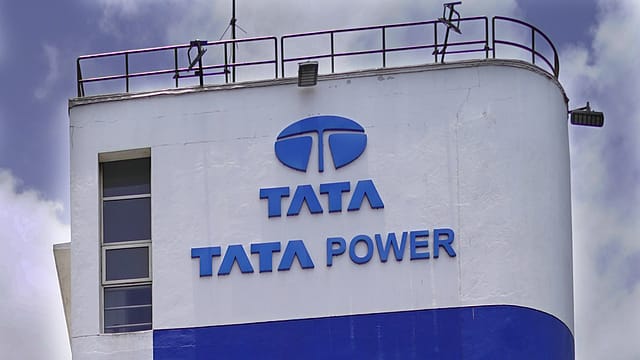Turnaround for Tata Power’s troubled Mundra plant as summer peaks
ADVERTISEMENT

As electricity demand peaks this summer, Tata Power Company Ltd (TPCL) witnesses a turnaround of its long-term loss-making ultra-mega power plant (UMPP) in Mundra. The 4,000 megawatt (MW) coal-fired plant is running at almost full capacity in the first half of April when electricity consumption grew nearly 10% year-on-year to 70.66 billion units (BU).
The Mundra plant was a major wealth drain for TPCL since it was commissioned in March 2013. The ambitious project--built at a cost of ₹18,000 crore -- made profits rarely over the last 10-11 years. The project, which was running on imported coal, had been making operational losses as it was not allowed to pass-through additional fuel costs to consumers. The plant failed to generate working capital for its operations and made cumulative losses of about ₹12,000 crore, say analysts.
According to sources, the capacity utilisation was high in summer last year also. "In fiscal year 2023, the company's net income available to common shareholders increased by 92% year-on-year, mainly due to the increase in power generation at the Mundra plant, increased sales in the power distribution business, and increased production capacity in the renewable energy business," says research firm Haitong International in its recent report.
February 2026
Despite a challenging global business environment and geopolitical turmoil, MNCs are a major part of the story of Corporate India. As the country moves closer to its Viksit Bharat goal, these multinationals are playing an increasingly pivotal role in shaping that future. Fortune India’s second edition of the MNC 500 list offers a comprehensive look at the performance of the 500 largest multinationals in India. The issue also decodes Budget 2026, highlighting the government’s long-term vision to sustain the economic momentum.
Rising temperature leads to higher electricity consumption as AC, coolers and fans run overtime. The peak electricity consumption in a day rose to about 218 GW in the first half of April compared to 206 GW in the same period a year ago. The peak power supply in a day in April last year was about 216 GW. Power ministry has projected a peak power demand of 260 GW during the summer season--- between April and June--- considering the longer heat wave duration. Peak power demand had touched an all-time high of 243 GW in September last year. The ministry plans to revive 5.2GW of non-operational thermal capacity to meet rising power demand.
The Mundra plant was running as a subsidiary--- Coastal Gujarat Power (CGPL)--- but merged with TPCL in 2022 for consolidation of assets and liabilities with the parent firm. TPCL won the project in an open auction by quoting the lowest tariff of ₹2.26 per unit, which it believed would be viable if it used cheap coal from Indonesia where it had stakes in coal mines. Soon after, in 2010, the Indonesian government banned export of coal below the global rate, upsetting Tata Power's calculations.
